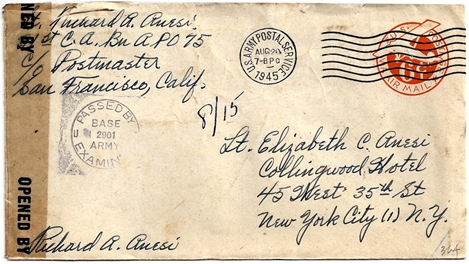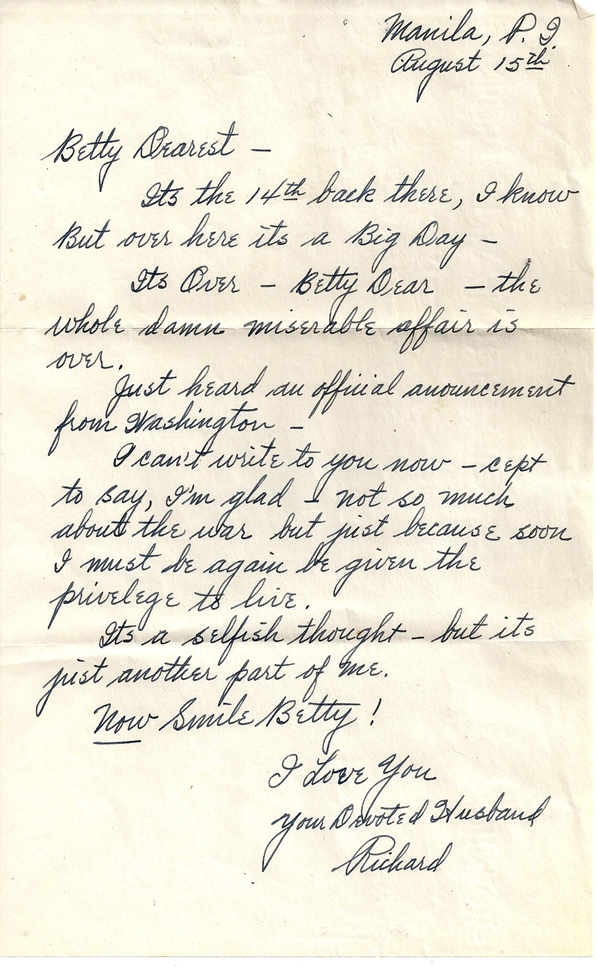
The Japanese Foreign Ministry sent telegrams to the Allies (via the Swiss) on 10 August announcing that Japan would accept the terms of the Potsdam declaration, but only if they would not "prejudice the prerogatives" of the Emperor. The Allies replied on 12 August that "The ultimate form of government of Japan shall, in accordance with the Potsdam Declaration, be established by the freely expressed will of the Japanese people." While the Allies awaited a response, a flurry of coded Japanese message traffic, some intercepted by Ultra, suggested that the Japanese were preparing a massive "Banzai" attack. As no additional atomic bombs were available (a fact not known to the Japanese, fortunately), Truman ordered the maximum possible conventional aerial and naval bombardment of the Japanese Islands, which included the largest air raid of the Pacific war.
Incredibly, diehard militarists still resisted surrender, but as on 10 August, Hirohito intervened, saying to his cabinet and councillors, 14 August, 1945:
I have listened carefully to each of the arguments presented in opposition to the view that Japan should accept the Allied reply as it stands and without further clarification or modification, but my own thoughts have not undergone any change. ... In order that the people may know my decision, I request you to prepare at once an imperial rescript so that I may broadcast to the nation. Finally, I call upon each and every one of you to exert himself to the utmost so that we may meet the trying days which lie ahead.
The text of the Imperial Rescript was completed and signed that evening. Around 23:00 Hirohito made a grammaphone recording of it, which was broadcast at noon Japanese Standard Time on 15 August:
After pondering deeply the general trends of the world and the actual conditions obtaining in Our Empire today, We have decided to effect a settlement of the present situation by resorting to an extraordinary measure.
We have ordered Our Government to communicate to the Governments of the United States, Great Britain, China and the Soviet Union that Our Empire accepts the provisions of their Joint Declaration.
To strive for the common prosperity and happiness of all nations as well as the security and well-being of Our subjects is the solemn obligation which has been handed down by Our Imperial Ancestors and which lies close to Our heart.
Indeed, We declared war on America and Britain out of Our sincere desire to ensure Japan's self-preservation and the stabilization of East Asia, it being far from Our thought either to infringe upon the sovereignty of other nations or to embark upon territorial aggrandizement.
But now the war has lasted for nearly four years. Despite the best that has been done by everyone -- the gallant fighting of the military and naval forces, the diligence and assiduity of Our servants of the State, and the devoted service of Our one hundred million people -- the war situation has developed not necessarily to Japan's advantage, while the general trends of the world have all turned against her interest.
Moreover, the enemy has begun to employ a new and most cruel bomb, the power of which to do damage is, indeed, incalculable, taking the toll of many innocent lives. Should we continue to fight, not only would it result in an ultimate collapse and obliteration of the Japanese nation, but also it would lead to the total extinction of human civilization.
Such being the case, how are We to save the millions of Our subjects, or to atone Ourselves before the hallowed spirits of Our Imperial Ancestors? This is the reason why We have ordered the acceptance of the provisions of the Joint Declaration of the Powers....
The hardships and sufferings to which Our nation is to be subjected hereafter will be certainly great. We are keenly aware of the inmost feelings of all of you, Our subjects. However, it is according to the dictates of time and fate that We have resolved to pave the way for a grand peace for all the generations to come by enduring the unendurable and suffering what is unsufferable .
We have ordered Our Government to communicate to the Governments of the United States, Great Britain, China and the Soviet Union that Our Empire accepts the provisions of their Joint Declaration.
To strive for the common prosperity and happiness of all nations as well as the security and well-being of Our subjects is the solemn obligation which has been handed down by Our Imperial Ancestors and which lies close to Our heart.
Indeed, We declared war on America and Britain out of Our sincere desire to ensure Japan's self-preservation and the stabilization of East Asia, it being far from Our thought either to infringe upon the sovereignty of other nations or to embark upon territorial aggrandizement.
But now the war has lasted for nearly four years. Despite the best that has been done by everyone -- the gallant fighting of the military and naval forces, the diligence and assiduity of Our servants of the State, and the devoted service of Our one hundred million people -- the war situation has developed not necessarily to Japan's advantage, while the general trends of the world have all turned against her interest.
Moreover, the enemy has begun to employ a new and most cruel bomb, the power of which to do damage is, indeed, incalculable, taking the toll of many innocent lives. Should we continue to fight, not only would it result in an ultimate collapse and obliteration of the Japanese nation, but also it would lead to the total extinction of human civilization.
Such being the case, how are We to save the millions of Our subjects, or to atone Ourselves before the hallowed spirits of Our Imperial Ancestors? This is the reason why We have ordered the acceptance of the provisions of the Joint Declaration of the Powers....
The hardships and sufferings to which Our nation is to be subjected hereafter will be certainly great. We are keenly aware of the inmost feelings of all of you, Our subjects. However, it is according to the dictates of time and fate that We have resolved to pave the way for a grand peace for all the generations to come by enduring the unendurable and suffering what is unsufferable .

